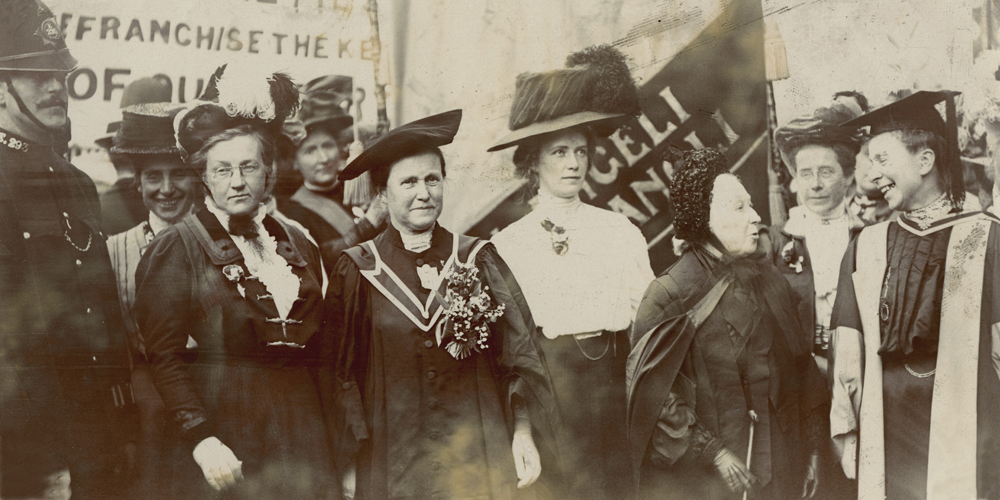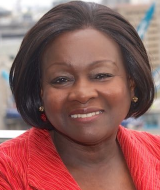The challenges that still exist
Despite first being observed in the early 1900s, International Women’s Day is still in full force today. This year’s theme – #BeBoldForChange – calls on all of us to make a world that works better and is gender inclusive. But...
Despite first being observed in the early 1900s, International Women’s Day is still in full force today. This year’s theme – #BeBoldForChange – calls on all of us to make a world that works better and is gender inclusive. But why is it still so important in 2017?
Although society has moved on from the early days of suffragettes demanding votes for women or the feminists of the 1960s and 1970s that paved the way for the contraceptive pill and for female employment to become the norm, the past year has seen significant changes in attitudes towards women. The misogynist temperament of the recently elected president of the United States and closer to home, a member of parliament’s Women and Equalities Committee Philip Davies MP attempting for the second time to filibuster a bill to protect women against violence, demonstrates that International Women’s Day is needed more than ever.
Even the fact that International Women’s Day sees spikes in searches for International Men’s Day (which is the 19 November for those wondering), highlights the challenges that still exist for gender parity.
Unconscious bias is something that we all have without realising it, formed by experiences and stereotypes that we see every day, from terms such as fireman instead of fire-fighter and the presumption that a doctor is male. This unconscious bias hinders young women from achieving their ambitions and guides them on a gendered path from a young age.
City Hall held an education conference last month and I chaired a session on getting young girls into STEM subjects. We heard some inspiring stories, including one of a determined young woman working hard to get a dream job in Formula One. Fortunately her school made it their mission to challenge stereotypes and pushes young women to pursue their dream career. However, it became apparent once she was attending university that subjects such as mechanical engineering are still dominated by men and introduced challenges that young women growing up in diverse London may not have yet dealt with.
Unconscious bias is not confined to the classroom. A quick interactive session with headteachers using word cloud, found that when they were asked to submit three words that come to mind when you hear the word girls, the words pink, princess and emotional were prominent. On the other hand ‘boys’ were considered to be strong, loud and smelly.
Furthermore, institutions such as the media perpetuate these images, for example, we are yet to see a female Doctor Who despite the series being on its twelfth Doctor. Not only does this unconscious bias and stereotypes prevent women from fulfilling their ambitions, it damages their self-esteem.
One in six young Londoners, 15.6 per cent, reported low life satisfaction in 2014/15, significantly higher than 15 year olds in the rest of England which stood at 13.7 per cent. Across the UK, young people from the most deprived groups are 1.2 times more likely to report low life satisfaction than the least deprived group. This increases to 1.3 times more likely for young people from ethnic minority backgrounds and 2.2 times more likely for girls.
To remove the stereotypes that exist in schools and the workplace, the government should look to tackle injustices in every part of society. In order for us to thrive in the digital revolution in the wake of Brexit, we need young women to become engineers, technicians, construction workers and coders. We are missing out on swathes of talent because young women are not confident or encouraged to pursue these careers, and face stigma and stereotypes when they do.
London’s schools showed what can be achieved with adequate funding and the government are making a huge mistake by not funding our schools properly. Instead they are obsessed with the idea of more selection which further contributes to low self-esteem.
If Theresa May is serious about transforming mental health support in our schools, she should go further in her reforms and commit to the teaching of resilience skills in schools. Young people, particularly women and children from ethnic minority or low-income backgrounds, would all benefit making it a valuable resource to enable them to be better equipped to deal with the challenges and stereotypes that they encounter.
It is these stereotypes that young women in particular face daily and whilst we have come a long way over the last century, it is disappointing to see that the World Economic Forum predicts the gender pay gap will exist long into the next century.
Last year’s theme #PledgeForParity encouraged us all to challenge the unconscious bias that we see every day. This year, we need to put this in action and encourage all young women everywhere to be bold, go forth and to be the next Doctor Who if they so wish.
Image: LSE Library

